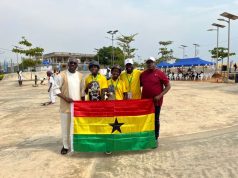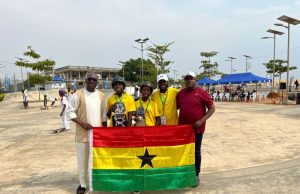In Bawku, escalating violence between the Kusasi and Mamprusi communities has prompted calls for an impartial approach to peacebuilding. During an April 12 appearance on TV3’s Key Points, conflict resolution specialist Austin Gamey argued that mediation must be guided by established legal frameworks rather than political interests.
He said, “Politicians should be put aside. There are rules governing the resolution of litigations. If they need our help, we will help…the Bawku conflict can be resolved.”
Members of parliament have echoed this call for unity. Kwame Andy Appiah‑Kubi of Asante Akim North urged leaders of the National Democratic Congress and the New Patriotic Party to collaborate and “hold hands to solve the problem” in order to restore stability. Rockson Nelson Dafeamekpor, the Majority Chief Whip, warned that persistent insecurity has halted infrastructure projects and stunted economic growth.
President John Mahama condemned the latest outbreak of violence on April 11 and reaffirmed support for a mediation process led by Asantehene Otumfuo Osei Tutu II. That initiative, paused due to the traditional ruler’s travel, is scheduled to resume soon in Kumasi following deadly clashes on April 10 that resulted in fatalities and the arson of MP Mahama Ayariga’s residence.
The human toll of the conflict has been severe. More than three hundred people have died since 2021, and thousands have been displaced. Schools, hospitals and businesses have shut down as residents flee, with public sector workers among those abandoning their posts. The disruption has exacerbated food insecurity and unemployment, and female school enrollment has declined amid rising poverty.
Efforts by the police to incentivize disarmament by offering preferential recruitment to local youth have met with criticism. Retired security analyst Festus Aboagye cautioned that such measures could set a precedent encouraging armed groups to demand similar incentives. Members of parliament described the proposal as ill‑advised and potentially counterproductive.
Long‑term stability will depend on a coordinated strategy that combines expert‑led dialogue, economic revitalization, security sector reform and meaningful involvement of traditional leaders and youth groups. Addressing historical grievances and restoring essential services will be crucial to rebuilding trust and preventing further fragmentation.
As the situation in Bawku unfolds, the shift toward neutral mediation and bipartisan cooperation underscores the necessity of separating peace efforts from political contests. History shows that durable solutions often emerge when communities and their leaders engage in open dialogue under the guidance of impartial facilitators, suggesting a path forward for a region in need of healing and renewed opportunity.
Send your news stories to newsghana101@gmail.com
Follow News Ghana on Google News
















